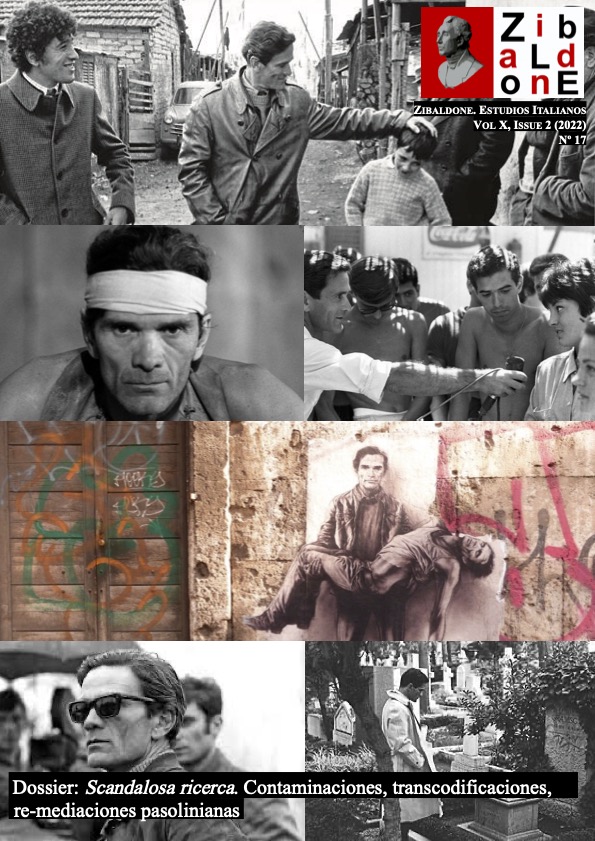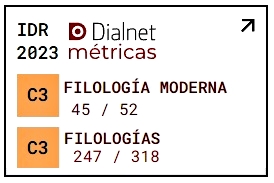Manifiesto por un nuevo teatro: paradojas, intuiciones, propuestas
Keywords:
Pasolini, Teatro, Actor, Espectator, Rito Abstract
Abstract
El Manifiesto por un nuevo teatro de Pier Paolo Pasolini (1968) es un texto que aúna la provocación con la riqueza de claves de reflexión y propuestas: la relectura del teatro como rito, el concepto de “canon suspendido”, tomado de Brecht y Barthes, la redefinición de actor y espectador, el uso de temas comunes al discurso político y la conferencia. En este artículo, se releen los aspectos más innovadores del Manifiesto, desde la perspectiva actual, identificando los puntos fuertes de una teoría que tiene algunos resultados imprevisibles en el teatro contemporáneo.
 Downloads
Downloads
Downloads
Published
How to Cite
-
Abstract1040
-
PDF (Español)802
Issue
Section
License
![]()
This work is licensed under a Creative Commons Attribution 4.0 International License.
All contents of this electronic edition, except where otherwise noted, are distributed under a “Creative Commons Attribution 4.0 International License.” license (CC-by). You may read here the basic information and the legal text of the license. The indication of the license CC-by must be expressly stated in this way when necessary.
Self-archiving in repositories, personal webpages or similar, of any version other than the published by the Editor, is not allowed.






